Staff play role in supporting frontline services during COVID-19 outbreak

Scientists at UWE Bristol are working around the clock to support frontline clinical areas during the COVID-19 emergency.
A team of academics have paused their research projects to focus on producing thousands of litres of disinfectant to help slow the spread of coronavirus.
Disinfectant produced in a lab at UWE Bristol’s Frenchay campus has so far been sent to South Western Ambulance Service NHS Foundation Trust, local GP surgeries and police stations. It is being used as either a surface disinfectant in high throughput areas (door pads, ambulance beds and desks) or as an alternative to hand sanitiser.
The team, from the University’s Faculty of Health and Applied Sciences, are also working with industry partners to increase production of generators that make disinfectant. These generators will be capable of producing 1,000L a day and will be installed in-situ at frontline services such as hospitals, ambulance stations, care homes and police stations so disinfectant is available where it is most needed.
As well as being used as a surface disinfectant, the UWE Bristol disinfectant could play a role in tackling the UK’s shortage of personal protective equipment (PPE) for medical staff. It can be used to spray down some PPE for decontamination and safe reuse as well as disinfect the inside of ambulances. This approach is being tested with industrial partners at an independent laboratory ahead of possible introduction to the front line.
A team of eight members of UWE Bristol staff, including PhD students and post-doctoral researchers, are working alongside the University’s estates department on the effort to support frontline services.
Darren Reynolds, Professor of Health and Environment, said: “We’ve been researching this technology for the past 20 years, and have specialist production facilities in our lab, so are very well placed to help support frontline clinical areas. We’re happy to be contributing our expertise and facilities to helping frontline staff who are doing a wonderful job in extremely challenging circumstances.
“The NHS would normally receive disinfectant from cleaning suppliers but as demand has increased, the supply chain is struggling to keep up. If there are any frontline services (hospitals, ambulance services, police stations, care homes), having difficulty with supplies of disinfectant or hand sanitiser, get in touch with us and we’ll endeavour to provide and deliver it. We are here to help.”
Unlike commonly used disinfectants such as bleach, the cleaning product made at UWE Bristol is called electrochemically activated solution (ECAS). ECAS technology can provide resilience to frontline sectors when supply chains struggle.
UWE Bristol is one of the leaders in the world on the development of electrochemically activated solutions and their applications. Previous research has included testing its efficacy on fresh produce, its use in off-grid drinking water production and as a surface disinfectant on a wide variety of materials.
The work on disinfectant forms part of the broader role UWE Bristol is playing in the immediate crisis. The University is in discussions with NHS colleagues to offer support and resources, which could include science labs being used for testing and nursing skills laboratories and simulation suites being used for training staff or providing care by using them as wards.
UWE Bristol has also offered to support the production of ventilators through its 3D printing and rapid prototyping facilities within the Bristol Robotics Laboratory at Frenchay campus.
Professor Steve West, Vice-Chancellor at UWE Bristol, said: “It is absolutely fantastic to see different areas of the University pulling together at this time of great uncertainty to use their experience and resources to support the NHS and other frontline services. Universities have the potential to play a critical part in getting the country through this immediate crisis and I’m enormously proud of all of our staff for their contributions.”
Related news

12 December 2025
UWE Bristol’s environmentally conscious and student-focused accommodation wins three awards
Purdown View, the world's largest certified Passivhaus student accommodation development, has been recognised at Property Week Student Accommodation Awards.

25 November 2025
New community initiative launches to support parents in their child’s education pathway
A new community initiative supporting parents and carers to become champions for their children’s futures launched this month in Bristol.

14 November 2025
Lecturer wins prestigious Times Higher Education award for innovation in teaching
A senior paramedic science lecturer at UWE Bristol has been named the most innovative teacher of the year in the Times Higher Education Awards 2025.
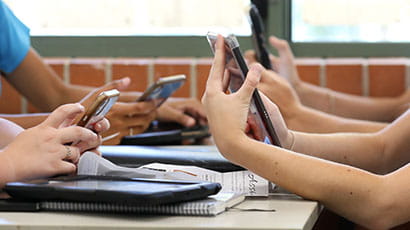
29 September 2025
Smartphone use hitting struggling pupils hardest, major study finds
Young people struggling with their studies at school are much more likely to have negative experiences on their smartphones than their better performing peers, a major new study has found.
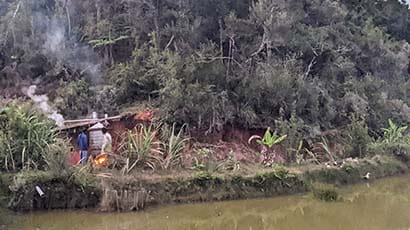
24 September 2025
UWE Bristol to help protect threatened forest in Madagascar in £800k project
UWE Bristol is a partner in a groundbreaking project awarded almost £800,000 in funding to protect one of Madagascar’s most precious and threatened forests.

11 September 2025
New study to investigate augmented reality as an intervention for emotionally based school avoidance
A UWE Bristol researcher will support a new study exploring whether an augmented reality board game can help young people with emotionally based school avoidance (EBSA).
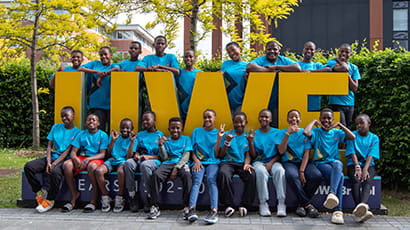
09 September 2025
Project Zulu choir celebrates another record-breaking tour
Nearly £37,000 was raised during three unforgettable weeks of the 2025 Project Zulu choir tour – setting a new fundraising record since the tour began.
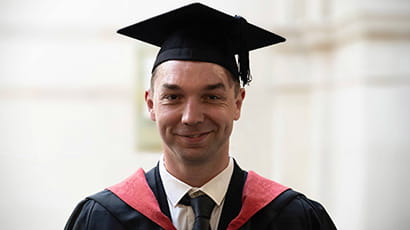
29 July 2025
Graduation for ‘tireless’ student committed to improving healthcare for deaf people
A paramedic science student who single handedly brought British Sign Language and deaf awareness training to hundreds of his fellow students has graduated.

16 July 2025
Vast majority of rural councils have no targets for social housing, study finds
New research reveals a serious shortfall in rural social housing, with only 20 per cent of local authorities setting targets to deliver it.
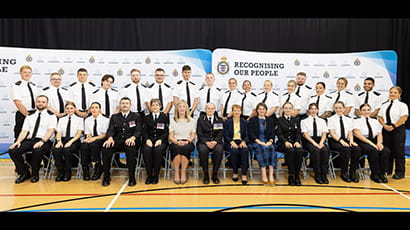
27 June 2025
UWE Bristol and Avon and Somerset Police renew partnership to advance police education
UWE Bristol and Avon and Somerset Police have signed a new 10-year agreement, extending their successful partnership to deliver high-quality, forward-thinking police education and training.
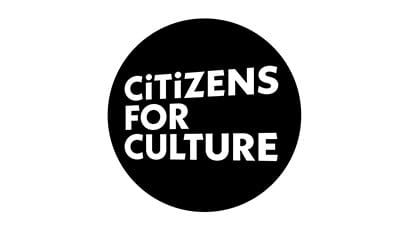
16 June 2025
Citizens take centre stage in groundbreaking cultural plan for the West of England
UWE Bristol is supporting Citizens for Culture – a new scheme which will empower people across the West of England to shape the region’s cultural future.
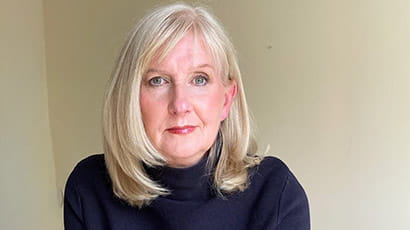
13 June 2025
Schools Outreach Manager receives MBE for trailblazing cyber security initiative for young people
A UWE Bristol manager who founded a pioneering cyber security initiative for young people has been recognised in the King’s Birthday Honours list.






